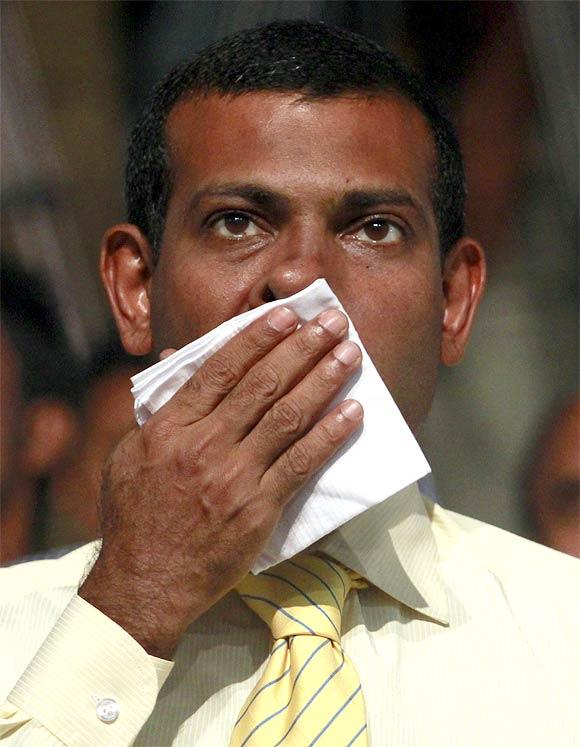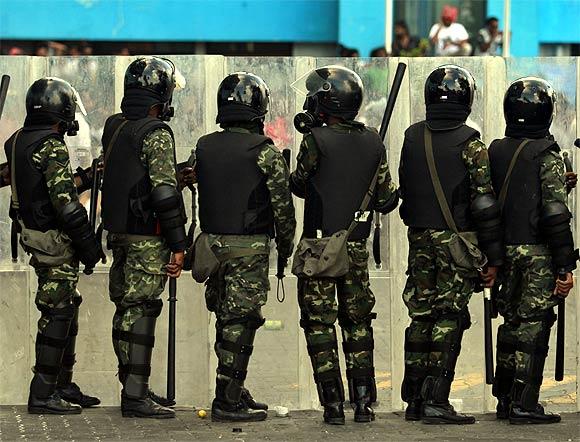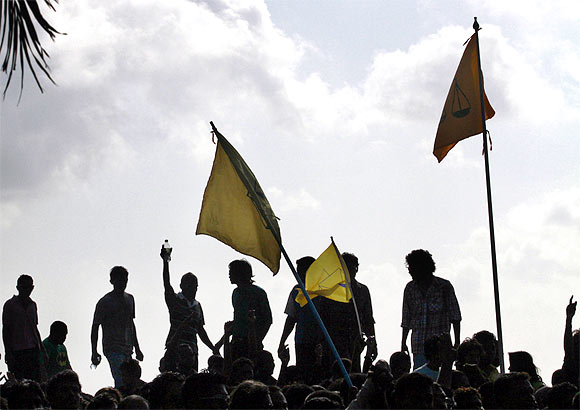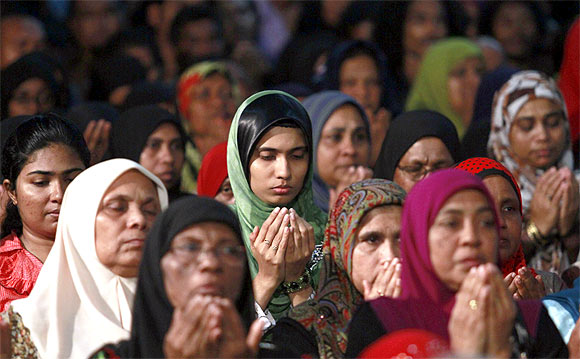 | « Back to article | Print this article |
'Problems in Maldives a WARNING for Muslim nations'
Ousted Maldives president Mohamed Nasheed has said he will be approaching the country's Supreme Court for justice following a coup, which he claims was engineered by then Vice President Dr Mohammed Waheed Hassan.
In an article for the New York Times, Nasheed said, "I believe this to be a coup d'etat and suspect that my vice president, who has since been sworn into office, helped to plan it."
He claimed that his decision to stand up to an influential judge -- over what he termed a controversial decision -- was the right one and that he had no choice but to take action to prevent the country's democracy from being strangled.
Click on NEXT for more...
For Rediff Realtime News on Maldives crisis, click here
'The beast can be slain'
Click on NEXT for more...
For Rediff Realtime News on Maldives crisis, click here
'I learned this lesson quickly'
"Dictatorships don't always die when the dictator leaves office. I learned this lesson quickly. My country, the Maldives, voted out President Maumoon Abdul Gayoom, its iron-fisted ruler, back in 2008, in historic elections that swept away three decades of his authoritarian rule. And yet the dictatorship bequeathed to the infant democracy a looted treasury, a ballooning budget deficit and a rotten judiciary," he adds.
He said that in his nearly three-and-a-half years in office, he had worked to cut the deficit, build a modern tax base, and ensure that democracy achieved a firm footing for the first time in the history of the Maldives.
Click on NEXT for more...
For Rediff Realtime News on Maldives crisis, click here
'Problems in Maldives a WARNING for Muslim nations'
He also used his article in the NYT to criticise the way the previous regime had handpicked the country's judiciary, and how these powerful judges had provided protection to the former president, his family members and political allies, many of whom are accused of corruption, embezzlement and human rights crimes.
Simultaneously, he said, a new force in Maldivian politics, Islamic extremists, abused new laws guaranteeing freedom of speech.
He said that he had approached the United Nations to help his government probe judicial abuses and excesses, especially by Abdulla Mohamed, the chief judge of the criminal court.
He said that in the end, police officers and army personnel loyal to the old government mutinied and had forced him, at gunpoint, to resign.
Nasheed said that he resigned to avoid bloodshed.
Click on NEXT for more...
For Rediff Realtime News on Maldives crisis, click here




